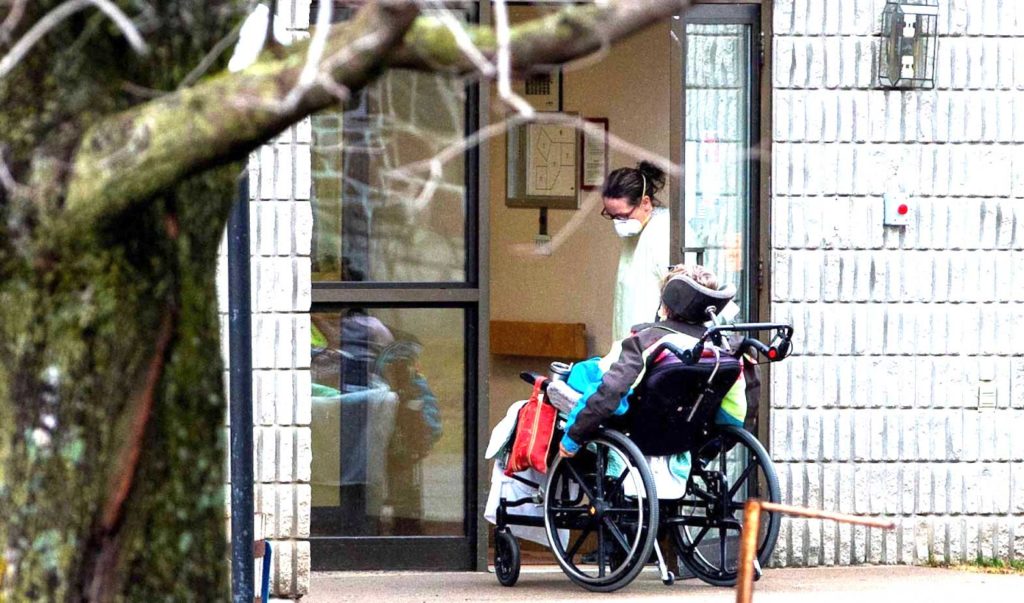Filipinos ‘over-represented’ in high Covid-risk Canadian industries

A woman opens the door to a person in a wheelchair at Pinecrest Nursing Home after several residents died and dozens of staff were sickened due to the coronavirus disease (COVID-19), in Bobcaygeon, Ontario, Canada, on March 30, 2020. (Carlos Osorio/REUTERS)
VANCOUVER, British Columbia— New data shows that Filipinos are over-represented in Canadian industries that are at risk for COVID-19, increasing calls for the government to gather race-based data on the impact of the pandemic.
University of British Columbia professor and researcher on human settlements Leonora Angeles says the pandemic has highlighted the contribution of people of color, such as Filipinos, in essential services, as well as the risk they face in certain jobs.
In several provinces, including B.C., the epicenter of COVID-19 outbreaks has been long-term care homes and assisted living facilities, reported CityNews1130.com. Filipino workers are highly visible in “the six-c’s: cleaning, caring, cutting, cashiering, clinical and cooking” and in dirty, difficult and dangerous jobs.
Ethel Tungohan, a professor at York University, says the over-representation of Filipinos in these industries, “isn’t because Filipinos are innately more caring, or that Filipinos are innately more interested in working in essential industries. It’s because of policies concerning de-professionalization and de-skilling.”
Filipinos who were nurses, doctors, or health care professionals in the Philippines find themselves in such difficult jobs because Canada does not easily recognize Philippine four-degree credentials, says Tungohan.
Last July, Statistics Canada reported that 42 percent of Filipino respondents experienced job losses and reduced working hours due to the pandemic, one of the highest among minority groups, reported City News.

